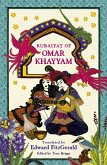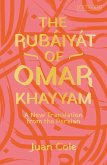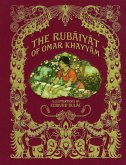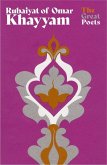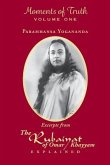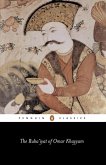"Rubaiyat of Omar Khayyam" is a collection of Persian poems, originally written by Omar Khayyam in the 11th century. The book is composed of quatrains, also known as "rubaiyat," that explore themes such as love, mortality, and the meaning of life. The poems are written in a simple yet profound style and are often filled with references to nature, wine, and the pleasures of life. Khayyam also questions the traditional beliefs of his time, including the idea of an afterlife and the role of religion in human affairs. One of the most notable features of the book is its use of imagery, which ranges from the beauty of a rose to the vastness of the universe. Khayyam's poems also contain a sense of melancholy and a recognition of the fleeting nature of life, which adds to the book's timeless appeal. The "Rubaiyat" has been translated into many languages and has become a beloved classic throughout the world. It continues to inspire readers with its timeless wisdom and its celebration of the beauty and impermanence of life.


